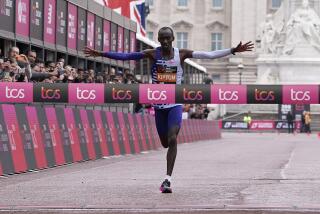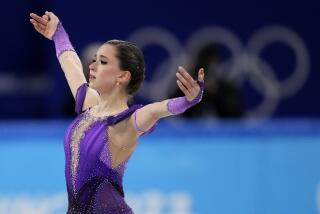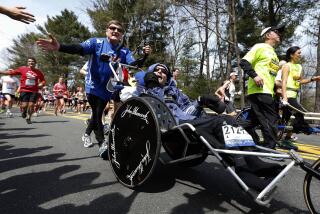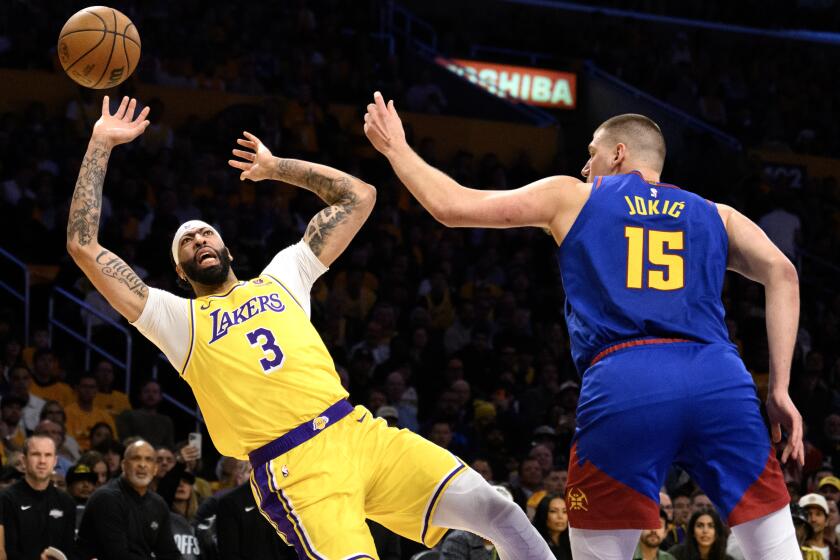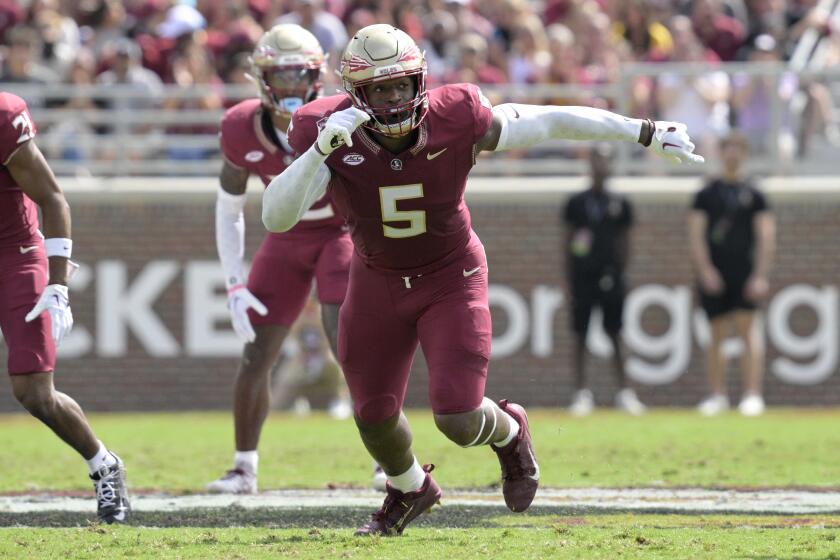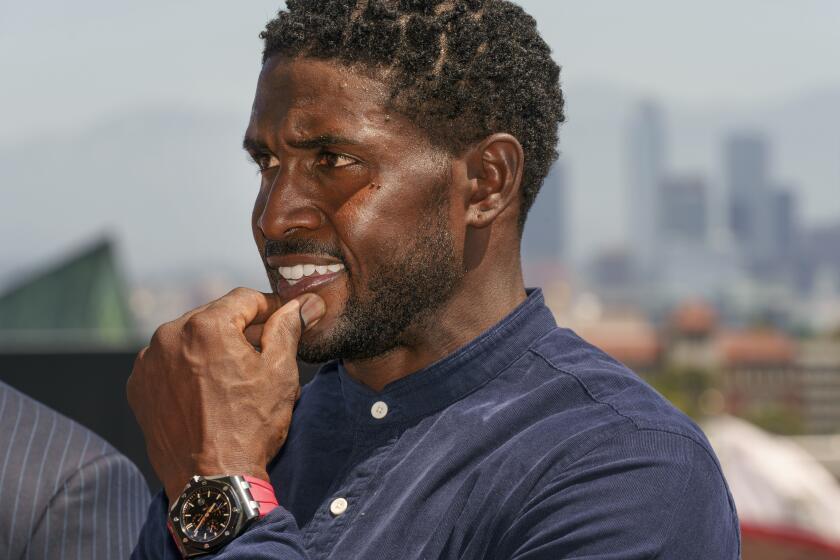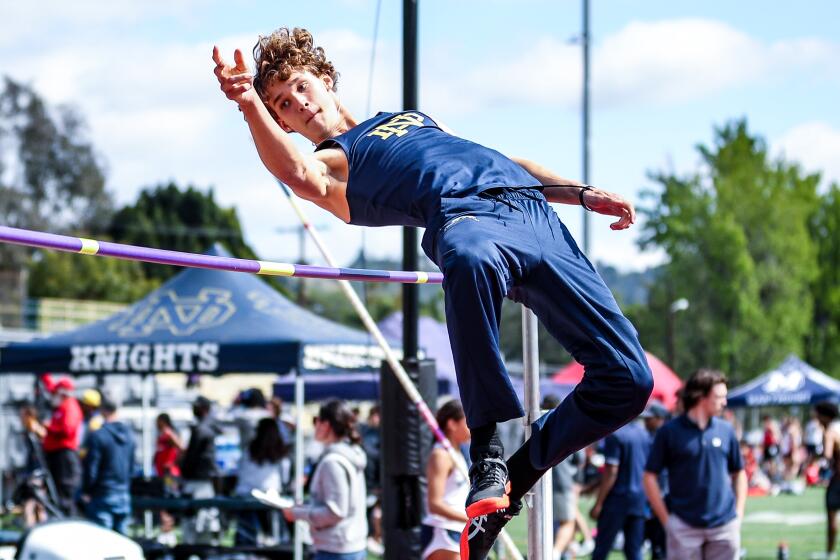U.S. bobsledders break 62-year medal drought
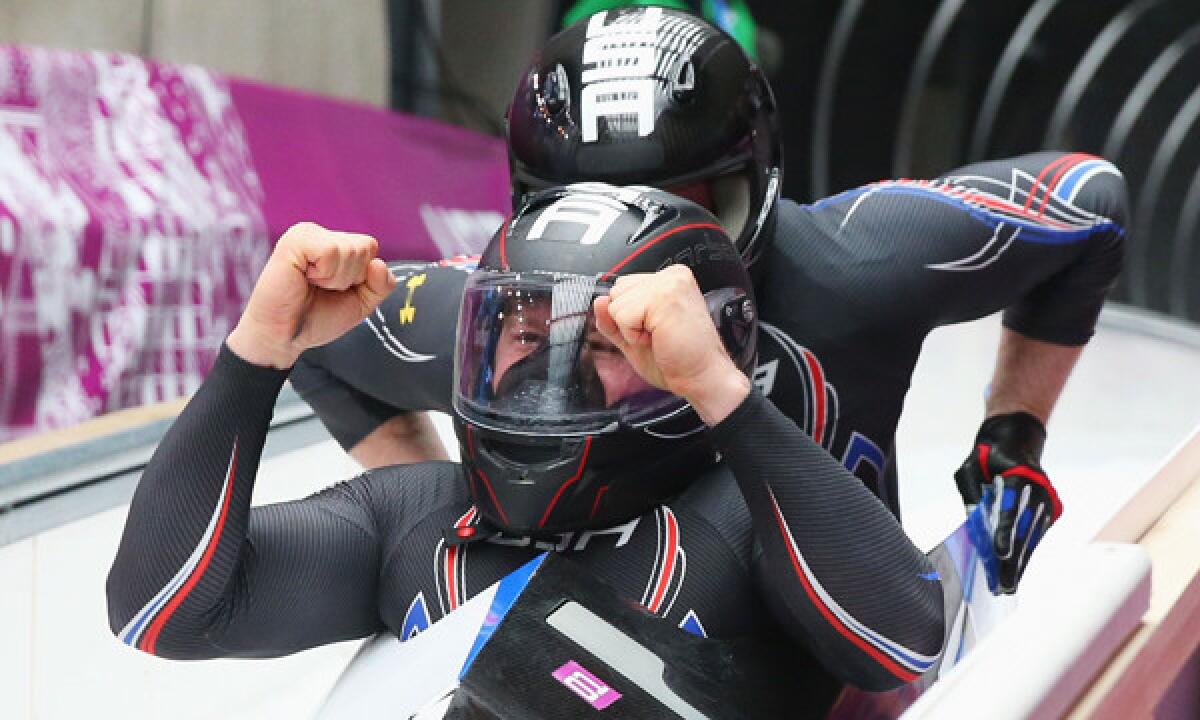
SOCHI, Russia — Steven Holcomb tried to hide the pain as he limped from interview to interview after the first day of competition in the two-man bobsled. He blamed the limp on his shoes, saying he accidentally brought the wrong pair and they made him walk funny.
He didn’t want his competition to know he was vulnerable, hobbled by a left calf strain suffered a few steps into the push on his second run Sunday. In fact, the pain was so intense, he wasn’t sure whether to stop running or hop in the bobsled.
“I’m glad he opted for the second option,” said U.S. men’s Coach Brian Shimer.
FRAMEWORK: Best images from Sochi
So was Holcomb, who pushed through the pain Monday to win a bronze with brakeman Steve Langton. Their medal ended the United States’ 62-year drought in the event and allowed Holcomb to throw aside concerns about his calf, if only for a little while.
The medal also marked the second time Holcomb has broken an Olympic dearth of that many years. He piloted the four-man bobsled to gold in Vancouver, the first time since 1948 that the U.S. had won that event.
“This is my second 62-year medal drought that I’ve broken, which is awesome,” Holcomb said. “If anybody else has a 62-year drought they need to break, just let me know and we’ll try to help you.”
Russia’s Alexander Zubkov and Alexey Voevoda won the event, giving the host nation its first gold medal in any bobsled discipline. Beat Hefti and Alex Baumann of Switzerland won silver.
U.S. pilots Cory Butner and Nick Cunningham finished 12th and 13th, respectively.
Holcomb waited until after the competition to reveal the extent of his injury, describing how the medical staff worked on his leg until 2 a.m. Monday. They tried everything from acupuncture to kinesiology tape to address the tightness, he said, but nothing seemed to remedy the problem.
The coaching staff began debating whether he should pull out of the competition so he could recover before the four-man race, in which he is favored to medal. A dozen different scenarios, each more unpleasant than the next, played out in their heads.
“It was a pretty dismal night, wondering if he was gonna be able to go [Monday] or maybe make it worse and also have to pull out of the four-man,” Shimer said.
The only one not worried about Holcomb’s availability, it seems, was Langton. He claimed to have lost no sleep worrying about his pilot’s leg.
“I knew when his name was called, he’d be ready,” Langton said.
Even though the pain had not lessened by Monday morning, Holcomb also knew he wouldn’t pull out.
“It’s four years to get to this point,” he said. “I’m not going to let a little calf boo boo stop me.”
The injury hindered Holcomb’s ability to push the sled, which cost the team valuable time at the start and forced Langton to pick up much of the slack. Together, the pair was able to hold on to third, beating the fourth-place Russian pair by three-hundredths of a second.
“I just had kind of a little game plan to come out and just run next to the sled and let my horse here take over,” Holcomb said, pointing to Langton. “He did a fantastic job.”
Twitter: @stacystclair
More to Read
Get our high school sports newsletter
Prep Rally is devoted to the SoCal high school sports experience, bringing you scores, stories and a behind-the-scenes look at what makes prep sports so popular.
You may occasionally receive promotional content from the Los Angeles Times.
